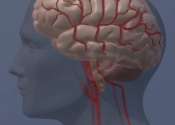Genes that aid spinal cord healing in lamprey also present in humans
Many of the genes involved in natural repair of the injured spinal cord of the lamprey are also active in the repair of the peripheral nervous system in mammals, according to a study by a collaborative group of scientists ...
Jan 15, 2018
0
438







